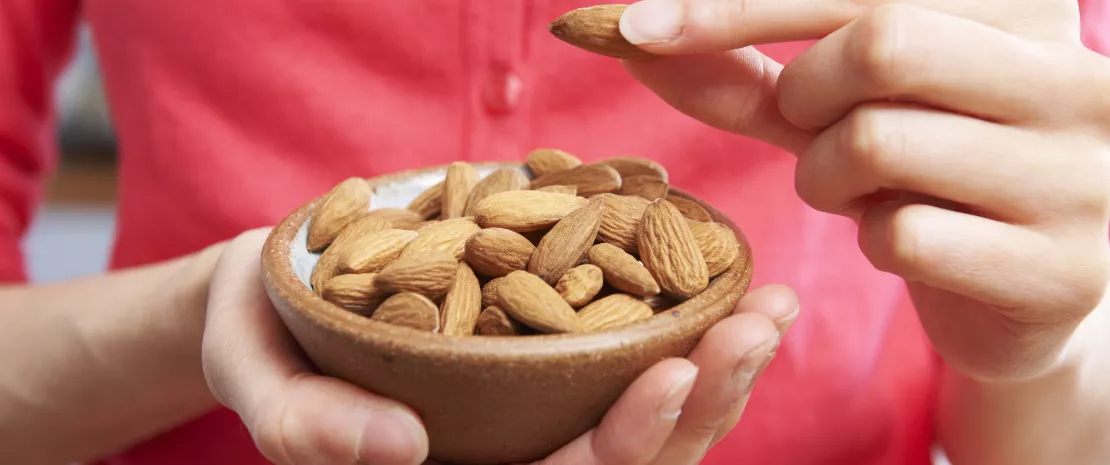Almonds: limited effects on the gut microbiota
Against all expectations, the consumption of almonds seems to have no effect on the gut microbiota and intestinal transit. The only benefit observed: a rise in the level of butyrate which saves the day for the funders of the study.
Lay public section
Find here your dedicated section
Sources
This article is based on scientific information

About this article
The almond producers of California have once again treated themselves to the Holy Grail of studies: a randomized controlled trial (RCT). Aim: to evaluate the impact of almonds and of their transformation (ground or not) on intestinal bifidobacteria and, secondarily, on the overall composition of the gut microbiota and intestinal transit time. To do this, 87 adults in good health, avid snackers (crisps, chocolate, etc.) and little inclined to consume fiber (fruit, vegetables, etc.), took part in this 3-arm trial: over 4 weeks, they replaced their 2 usual snacks either by whole almonds (2*23 g/d), or by ground almonds (2+23 g/d) or by 2 muffins with the same calorie content (control).
26 g of almonds = around 20 almonds (1 handful)
Almonds: the end of a nutritional myth?
Outcome? Contrary to the main hypothesis, bifidobacteria were not more abundant in the stools of the whole almond (8.7%) or ground almond (7.8 %) groups compared with the control (13.0 %), the opposite was the case. Nevertheless, the slight difference does not withstand an adjustment to the test. Almonds also have no effect on the gut microbiota, intestinal transit time (which the researchers thought was accelerated), stool consistency or intestinal symptoms. The particle size of ground almonds was finer than that of almonds after mastication: for all that, the effect of grinding on the release of lipids and therefore their accessibility by the organism proved smaller than anticipated, to the point that the researchers concluded that the commercial grinding of almonds does not lead to clinically significant differences in terms of nutrient bioaccessibility.
The only significant difference observed: the consumption of almonds (whole and ground) led to an increase in the production of butyrate by the gut bacteria (24.1 μmol/g vs 18.2 μmol/g for the control), a short-chain fatty acid with recognized health benefits, which, according to the authors would suggest a modification of the functions of the gut microbiota.
No prebiotic effect
It is without doubt a disappointment for the American producers but, according to this RCT, the consumption of almonds does not exert a prebiotic effect on the fecal bifidobacteria, produce major changes in the microbiota, or affect transit. Could the predominance of women (86.2%) and young people (27.5 ± 6.2 years) in the volunteers have biased the results? Perhaps. In the meantime, other studies are expected targeting a more uniform population to confirm these results.








